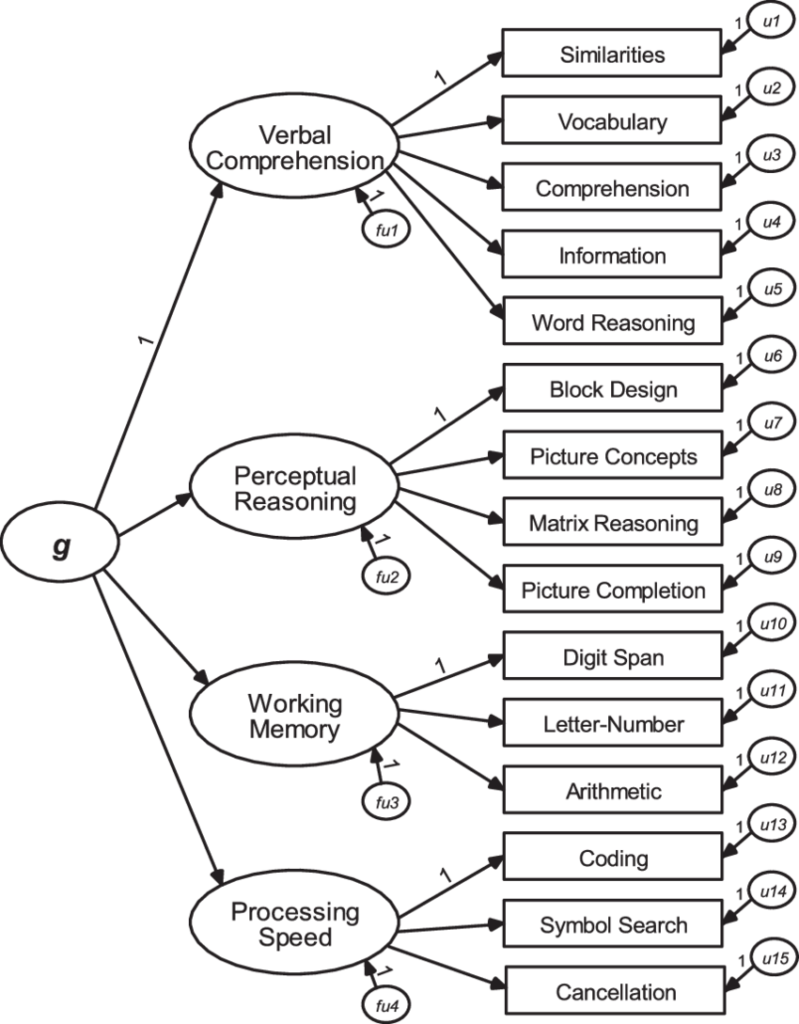So, I have this photo… Ben, probably four years old, standing next to this crazy block tower, like, twice his height. Pure pride on his face, y’know? And I was all, “This kid, he’s gonna do big things.” But then, bam! Kindergarten hits, and reading’s a battle all of a sudden. My super-smart boy, stumped by those little books. That’s when it’s like, okay, what’s going on here?
See, that’s the thing about being a parent, right? One minute you’re convinced your kid’s a prodigy, the next you’re lost. Those IQ tests…they’re not perfect, but sometimes, they help make sense of that brilliant, baffling little brain. It’s about seeing the big picture, not sticking your kid in a box.
Table of Contents
What is an IQ Test?
Intelligence Quotient tests are standardized assessments designed to measure human intelligence.
These tests evaluate a variety of cognitive skills, including logical reasoning, problem-solving abilities, mathematical skills, and language comprehension. IQ tests aim to provide a quantitative measure of intelligence relative to a normative sample.

Top IQ Tests: What They Measure and When to Use Them
Alright, enough mushy stuff, let’s talk specifics. That IQ score, it’s just a starting point. The juicy details are in the breakdown. Here’s the deal on the most trusted tests:
Wechsler Intelligence Scale for Children (WISC)
You’ve heard of this one. Great for ages 6-16, checks in on all sorts of thinking skills. Bit of a long haul, though. It consists of 15 subtests that evaluate different cognitive abilities, including verbal comprehension, perceptual reasoning, working memory, and processing speed.

- Age Range: Designed for children aged 6 to 16.
- Key Features: Offers detailed insights into specific cognitive domains, aiding in the diagnosis of learning disabilities and other cognitive issues.
Stanford-Binet Intelligence Scales
Another one with a long history. Good for that established reliability. Measures five factors of cognitive ability: Fluid Reasoning, Knowledge, Quantitative Reasoning, Visual-Spatial Processing, and Working Memory.
- Age Range: Suitable for children aged 2 to 18.
- Key Features: Provides a comprehensive assessment of a child’s cognitive strengths and weaknesses.
Differential Ability Scales (DAS)
Think of it like…well, like zooming in on one part of your kid’s brain. If they ace math but words make ’em freeze up, the DAS will show you why. Measures verbal and non-verbal reasoning, along with specific cognitive skills such as memory and processing speed.
- Age Range: Appropriate for children aged 2 years, 6 months to 17 years, 11 months.
- Key Features: Provides a comprehensive profile of cognitive strengths and weaknesses.
Kaufman Assessment Battery for Children (KABC)
Does your child take in information bit by bit or all at once? The KABC reveals learning styles, which are incredibly useful for tailoring how they’re taught. Focuses on simultaneous and sequential processing skills, as well as learning and memory.
- Age Range: Suitable for children aged 3 to 18.
- Key Features: Emphasizes non-verbal testing methods to ensure fairness across different cultural and linguistic groups.
Woodcock-Johnson Tests of Cognitive Abilities
Verbal skills, logic, spatial reasoning – it’s a comprehensive look at core thinking abilities. Includes various subtests that evaluate different aspects of cognitive functioning, such as general intellectual ability, specific cognitive abilities, and academic skills.
- Age Range: Suitable for individuals from age 2 to adulthood.
- Key Features: Offers a detailed analysis of cognitive abilities and educational performance.
Cognitive Assessment System (CAS)
This one’s all about process: attention, memory, etc. It reveals a child’s strengths and weaknesses in the mechanics of learning itself. The Cognitive Assessment System is based on the PASS theory of intelligence, which emphasizes Planning, Attention, Simultaneous, and Successive processes.
- Age Range: Designed for children aged 5 to 17.
- Key Features: Provides insights into cognitive processes underlying learning and behavior.
Universal Nonverbal Intelligence Test (UNIT)
Language fluency or cultural background shouldn’t limit a child’s ability to show their smarts. The UNIT uses mostly visual reasoning puzzles.
- Age Range: Suitable for children aged 5 to 17 years.
- Key Features: The UNIT uses hand and body gestures, symbols, and other nonverbal means to assess intelligence, making it accessible to children with diverse language backgrounds.
Some More Great Options
Otis-Lennon School Ability Test (OLSAT)
Practical for classrooms, assessing both word-based and visual reasoning.
- Age Range: Suitable for children from kindergarten through 12th grade.
- Key Features: Often used for identifying gifted and talented students.
Reynolds Intellectual Assessment Scales (RIAS)
Offers separate verbal and nonverbal scores for kids who excel unevenly in those areas.
- Age Range: Appropriate for individuals aged 3 to 94.
- Key Features: Quick to administer, making it suitable for various settings.
Naglieri Nonverbal Ability Test (NNAT)
Excellent for children who might struggle with language-heavy tests.
- Age Range: Suitable for children from kindergarten through 12th grade.
- Key Features: The NNAT focuses exclusively on nonverbal cognitive abilities, making it suitable for children with limited English proficiency or speech and language impairments.
Important Notes
Little Ones: The WPPSI (2.5-7 years) and Bracken Basic Concept Scale are best for the preschool set.
Quick Check: The Kaufman Brief Intelligence Test (KBIT) gives a fast estimate of verbal and nonverbal ability.
No Words Needed: The Leiter-R and TONI rely entirely on pictures and patterns.
Spotting Patterns: Raven’s Progressive Matrices or an individual test from the WISC focus on this specific reasoning skill.
Dispelling IQ Test Myths
Unfortunately, there’s a lot of misinformation out there about intelligence testing. Here’s the truth:
Myth: IQ is carved in stone. Nope! Environment, effort, and good teaching all influence how a child’s abilities develop.
Myth: They’re just for gifted kids. Not true. Understanding why a child struggles is equally valuable.
Myth: A high score = guaranteed success. An IQ score is a snapshot, not a crystal ball. Work ethic and emotional intelligence matter just as much.
When SHOULD You Consider Testing?
- Persistent School Struggles: Your child works hard, you try different things, but they’re still sinking. Testing can reveal if there’s an underlying issue.
- Boredom & Underachievement: The work is too easy, they act out in class… maybe their brain needs more of a challenge.
- Big Decisions: Skipping a grade, a specialized school – test results add data to those complex choices.
When NOT to Test
- Because Everyone Else Is: Test when there’s a real question to answer, not just peer pressure.
- To Brag: Your child’s value isn’t in their IQ. Overemphasizing scores can backfire.
- To Settle Family Disputes: Parenting is about teamwork, not ‘winning’ with a test result.
The Psychologist’s Role: Your Testing Partner
A good psychologist or school counselor doesn’t just give the test – they help you choose the RIGHT one and make sense of the findings. They should explain things in plain language and focus on how the results translate to your child’s everyday life.













